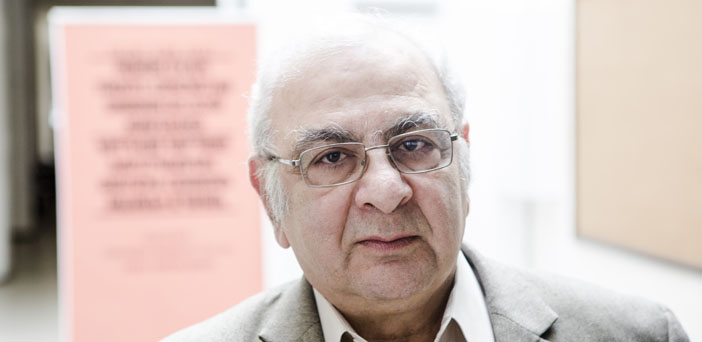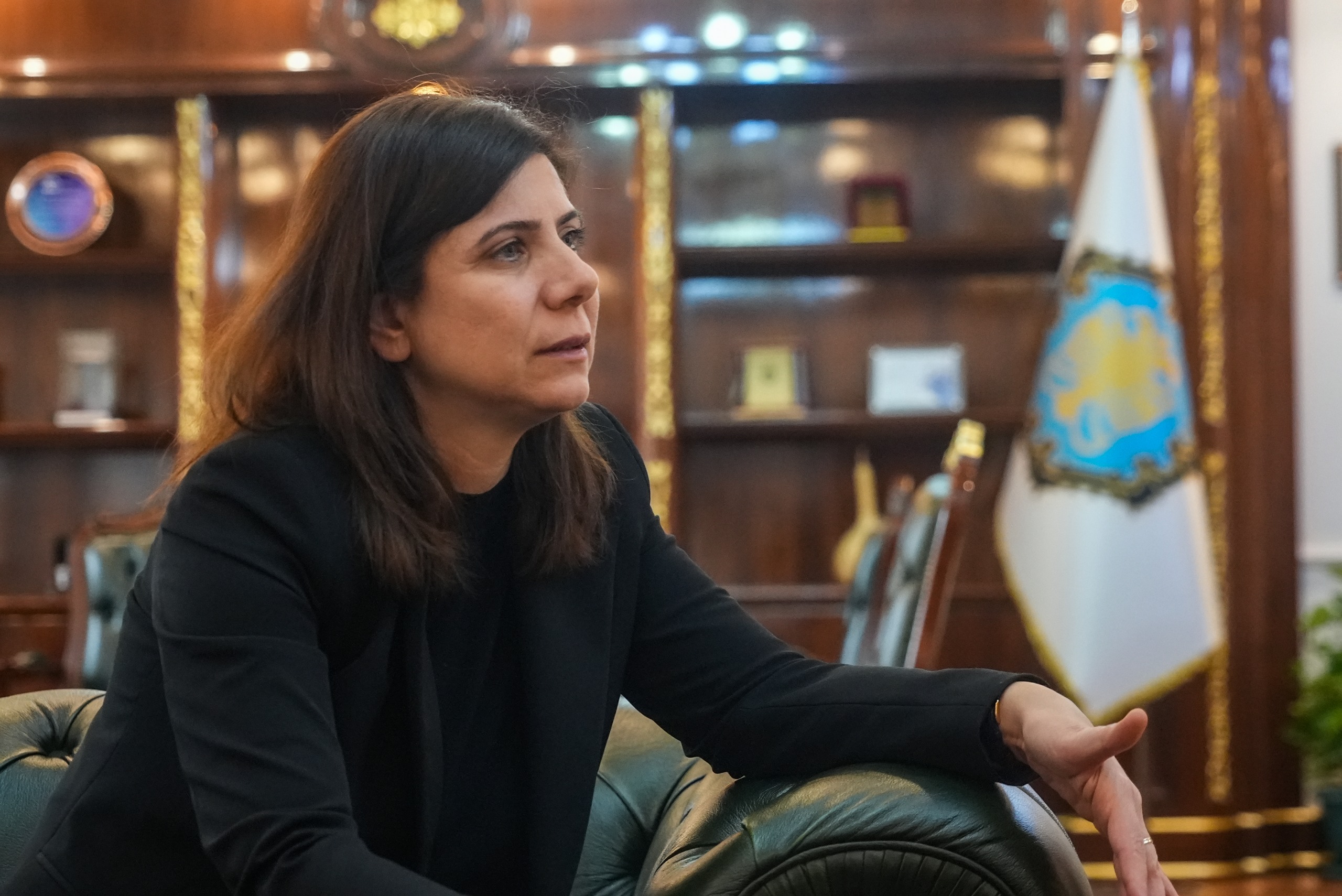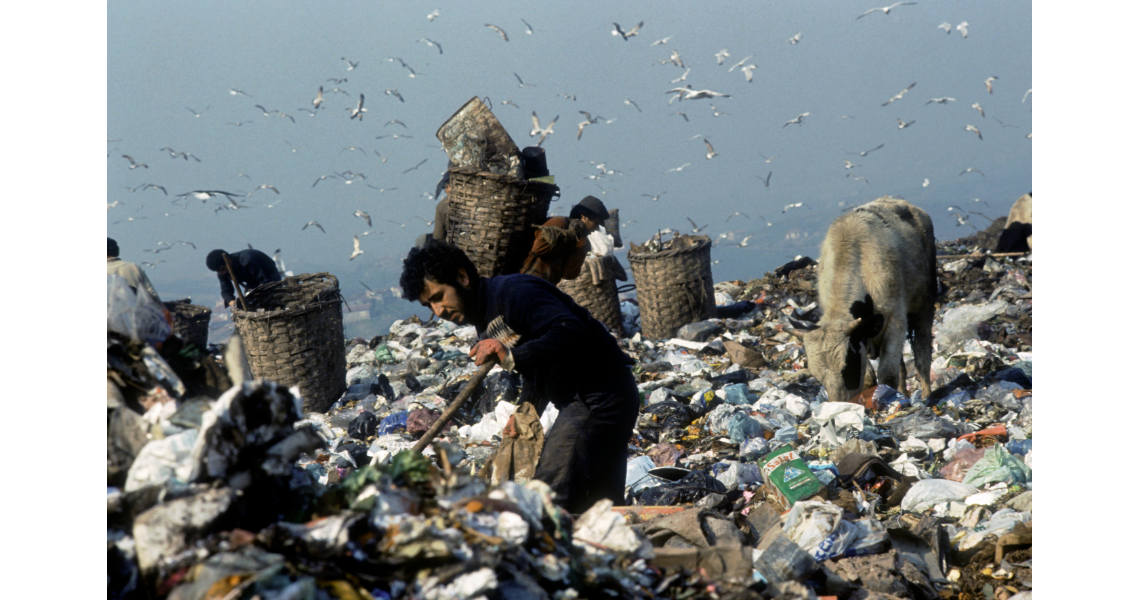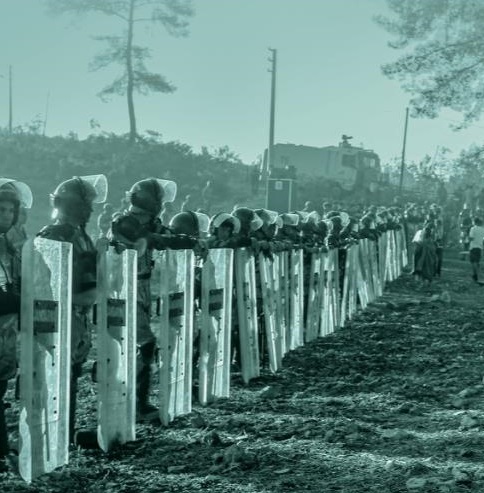We interviewed historian and politician Gerard J. Libaridian, who participated in the Sealed Gate Conference organized by the Hrant Dink Foundation, and as its 100th anniversary approaches, talked about the Genocide.
LORA SARI
lorasari@agos.com.tr
MARAL DİNK
maraldink@gmail.com
The chair of the first session of the ‘Sealed Gate: Prospects of the Turkey-Armenia Border’ Conference organized on 22-23 November 2014 at Ankara University by the Hrant Dink Foundation was Gerard J. Libaridian. Politician and historian Libaridian served as adviser to Armenia’s first President Levon Ter-Petrosyan from 1991 to 1998, and during the session he chaired, it was not the speakers, but Libaridian that received the most questions. When he was asked by a member of the audience, “Are you the Libaridian who in the US made allegations of genocide on the basis of false documents?” Libaridian responded solemnly, “I do not discuss the facts of the Genocide. I would consider that an insult.” As the 100th anniversary of the Genocide approaches, we talked with Libaridian about the Genocide.
Let us begin with your expectations for 2015. What kind of a year will it be?
There’s quite a bit of activity, preparations as stated by the government of Armenia, organizations in the Diaspora, from church to political parties, to cultural organizations. There are expectations that the 100th anniversary means something other than the 99th anniversary. It’s not clear to me, however, what will be different on April 25, 2015, that would not exist on April 23. Some people may think that all these activities and initiatives, PR and lobbying may produce a much more significant impact on the words of governments, such as maybe Obama will use the term genocide this time; there are such expectations. I don’t know if anyone expects that all of this will produce any change in the Turkish government’s perception. But some are certainly trying to use this to move from the recognition issue, to the issue of reparations, compensation etc.
Do you think Obama will use the term ‘genocide’ this year?
I don’t know if Obama will use the term or not, I personally do not care. I don’t think our welfare, program and agenda should depend on whether an American president or Chinese president uses the term or not. I think overall, as important as it is that the Turkish government recognize it, still we should not be hostage to the decision of the Turkish government in deciding what we do as a people, as a nation, as a Diaspora, in terms of our development. So this is my difference, when compared with the approaches where everything centres on someone else’s recognition and therefore our brains and hearts and souls are taken and controlled by someone else. I’m not sure what are the chances of Obama using the term. If relations between the US and Turkey are in a very bad shape, then he, or someone in the government may use the term. But, I still don’t think they will use the term ‘genocide’. I think he will continue to use the term ‘Medz Yeghern’ [‘Great Crime’]. Maybe he will make a stronger statement but he won’t go as far as to use the term ‘genocide’.
Let us say Obama did use the term ‘genocide’. Would this create any danger for Turkey Armenians? Like attacks against them…
The Diasporan organizations and leaders have usually been quite insensitive to the community of Armenians in Turkey. In general they do not consider this community when they calculate and plan. But of course all of that changed with Hrant. Now not only with the Hrant Dink Foundation and Hrant’s legacy, but we also have suddenly realized there are now activities here and the community has come to life, although it’s much smaller than other communities. But it has a history, it has got foundations, it has a memory and potential given the changes in Turkey and changes within the Armenian community itself. The community in Turkey is a very conservative community, a church-oriented community. However, there are also initiatives and activities that are outside the church, so they display a different character. Having said that, it is possible that there might be a reaction from some – I don’t think from the government although the government will react but the government will not react the way you just mentioned, but there are elements that are on the margins of extreme elements that might, and I’m not sure what to do about that. But it’s really a very important point that must be pursued but resolved within Turkey, and Diasporan organizations shouldn’t get involved in this. It’s between the Armenian citizens of Turkey and the government, and taking some pre-cautions is the best way I can think of.
How do you see 2016 for Armenians?
What will happen is that we will realize that there’s not been a fundamental change. The world is still the same; the sun will rise east to west. I think there’ll be a certain tiredness in the Armenian communities, and they’re going to start thinking about how to adjust to a post-100th year world. As I said, I myself don’t expect fundamental changes. I think there could be changes: Some steps have been taken by the Turkish government, they are modest steps, maybe symbolic steps, but they are important. And that may create a wider segment in the Armenian world that looks at the Turkish government from a more positive point of view, because of the steps that have been taken. The Turkish government is moving in a certain direction and we should be supporting that maybe, and working with that and making sure that these steps mean progress as much as possible. So, I don’t think there’ll be earthshaking changes, but there could be small changes that eventually turn into a qualitative change.
So can we see Erdoğan’s ‘message of condolence’ as a small step?
This is a big step. It is the first time a Prime Minister of Turkey has said anything about the subject.
So could this step give us an idea about how 2015 will be?
Perhaps. The new Prime Minister may make a new statement, or Erdoğan himself. And that might come closer to what we want, without of course using the term genocide. I am quite sure they will do it. It’s not possible that they did it on the 99th anniversary, but won’t on the 100th. On exactly how much better that will be, we will have to see and I’m not sure they know. The Turkish government is listening to Armenians. They’re making a major effort to talk to all kinds of Armenians and I don’t think they have decided what needs to be said. My position on that has been that it’s a very important step and it will be a foundation if it is seen as a beginning of a public discussion. But if it’s seen as the end, an attempt to close discussion, then it will be more damaging than ever. So in and by itself it’s a great step, but we’ll see what follows that. It’s the future that will decide what the place of this message will be.
Before and after the message of condolence, we also saw that the government continued its lobbying activities.
That is true. Their position has not changed formally. First of all the style has changed, and their strategy is not so much now to fight recognition head on, like they used to 10 years ago. Now they say ‘it’s questionable’ ‘we don’t know’ or ‘Let’s let the historians decide’ etc., which is more subtle. But once you give your position up, then you start losing ground. The position is on shakier ground, it’s not solid because they can’t maintain it. They are not as, from what I see, bloodthirsty about it. They’re feeling they’re losing ground and they’re trying to find a midway to say ‘No, it wasn’t genocide’ but at the same time sound reasonable.
So why do you think they gave up their former position?
It’s very difficult to maintain the position that was there 10 years ago. Not just because the Armenians’ fight for recognition, but because the mentality of this government is somewhat different. Its sources of political theory and understanding are not based on a nationalist narrative but a religious one, which is in some ways helpful, and some ways not. But, they want to be critical of the nationalist tradition, and in that, they are closer to the Ottoman tradition. They see the Ottoman tradition as more tolerant. But, the Young Turks are also part of Ottoman tradition, so the point now is to convince them that the Young Turks were not a religious group. Religion was not the most important thing for the Young Turks, they were moving towards nationalism, which these guys don’t like. Erdoğan criticized the Dersim Massacre, that couldn’t have happened before, and he did it to discredit nationalism and the opposition party. There’s work to be done there and we can’t treat this government the same way we treated the previous government. It may be better for Turkey, or worse for Turkey, but still it’s a different world, and on the Armenian side, there isn’t that much of an effort to understand the intellectual context, the philosophical context, which is very important for these people. We have to understand that this is a different government
The Erdoğan-Davutoğlu relationship is crucial
What do you think this government’s policy is regarding the border question?
I don’t think at this point on that score there’s much of a change. I think initially when this government came to power and Abdullah Gül was president, he had a different line. But Erdoğan was not so sure, and eventually Gül’s influence decreased and Erdoğan’s increased, and he has become harder on that line. And I’m not so sure about Mr. Davutoğlu. Now the interesting question now is, how the two, Mr. Erdoğan and Mr. Davutoğlu, relate to each other. They’re very faithful friends and whatever, eventually they are in a very strange position, where Mr. Erdoğan is acting like the real leader of Turkey, while the constitution gives the prime minister the authority. There wont be a change on the border issue, without some progress in the Karabagh negotiations. I don’t think that will happen. I think this is too deep, too ingrained, and it will not be possible without some progress.
What is your impression of the conference? Do you think it has helped in any way?
It must have… It has created a whole context. The issue had been discussed before, some people have written on it. But this was the first time that there was a full understanding of what the closed border means, the political, economic and social aspects, all of that was fully articulated. I think there were 14 Turkish scholars here that are not necessarily involved in genocide recognition. We had foreign ministry officials here as well, and it’s a major step toward formulating this as an agenda item Turkish foreign policy.





